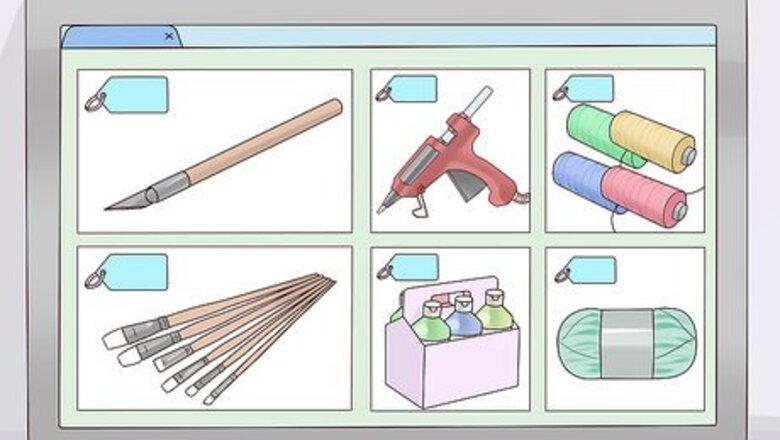
views
Saving Money on Supplies
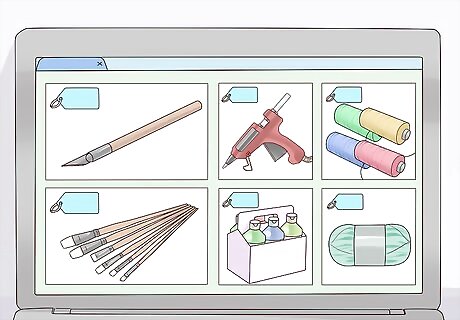
Make some purchases online. You can often save money making purchases online. Online craft stores and hardware stores may have specials or discounts. If you found prices in a local store were out of your budget, see if you can find something cheaper online. Large websites, like Amazon, tend to carry basic supplies for cheaper than specialized stores. Purchasing something like nuts or bolts on Amazon may be cheaper than going to a hardware store. You also may be able to find secondhand items for very cheap on sites like Craigslist. However, always use precaution when meeting someone online. Meet in a public space to make purchases.
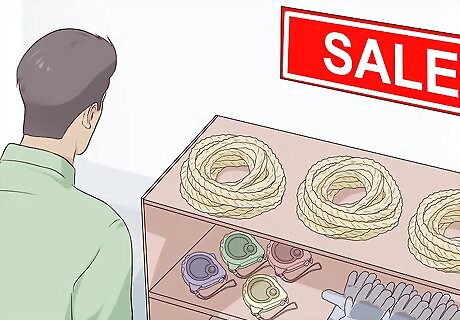
Learn which supplies you can buy for cheaper prices. Some supplies are worth the extra cost, as they're likely to hold up longer. However, very basic supplies can be bought for cheap. Things like rope, sand paper, tape measure, and work gloves can be bought at discount prices. Supplies that won't actually be part of the final project are better purchased at discount prices. For example, invest in high quality yarn if you're making a hat, but save some money on cheaper knitting needles.
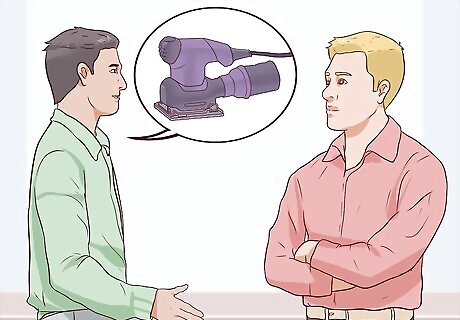
Borrow tools when possible. If you're only going to use a tool for a single project, you probably don't need to spend money buying that tool. If you, say, need a sander for a DIY project, see if you can borrow one from a friend instead of spending a large chunk of money on one.
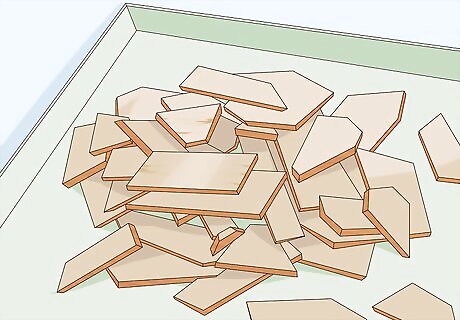
Save scraps when possible. Each time you make a project, save any scraps. Scraps of wood, metal, fabric, and other supplies can be used in a project later on. If you've been saving scraps here and there, check your scraps for anything salvageable. This can save you a lot of money on buying new supplies. For example, if you want to sew a new blouse, why not sew it out of leftover fabric instead of wasting money on new supplies?

See if you can save money by buying supplies in bulk. If you do DIY projects a lot, look into buying in bulk. It's often much cheaper to buy certain items in bulk than it is to buy small amounts of supplies. When you're at a craft or hardware store, look at the bulk price. See if discounts apply if you buy a certain number of a particular item. Remember to be realistic when buying in bulk, however. Do not buy supplies in bulk if you're unlikely to make a project again. If you're building, say, a tool shed, do not buy plywood in bulk unless you foresee yourself building multiple tool sheds over the years.

Check discount stores. If there's a discount store in your area, check to see if you can find cheap items there. Some items can easily be bought for a cheaper price at a discount store. However, don't skimp on items that are necessary to hold a project together. Something like cheap plywood may not be a great idea, for example.
Planning Ahead Wisely

Research ahead of time. Knowing exactly what you need can help you save money when buying supplies. It can also help you save money long term as you'll know how to invest in quality supplies. You won't spend as much money repairing a faulty project over the years. Get a decent sense of how much supplies you'll use. You don't want to end up purchasing more than you need. You should only purchase a little extra in case you make a mistake. Shop around. Do not buy the first item you see at a hardware store, department store, or craft store. Visit several stores to try to find the best prices. Read reviews of stores and supplies online. This can help you purchase quality material. Supplies that break down easily will not save you money over time.
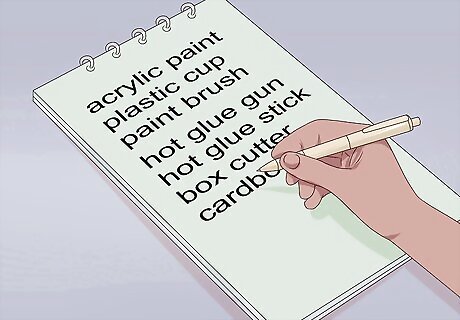
Make a detailed list of what you need before going shopping. Always shop with a list. For any shopping trip, shopping with a list helps you avoid over purchasing and impulse purchases. Once you've researched what you need, write down the exact amounts of all your supplies before making a shopping trip.

Anticipate problems and plan accordingly. Problems do happen with DIY projects, especially if you're attempting something for the first time. Anticipating problems ahead of time can help you save. Think about any potential problem and how you'll deal with it. Account for your own mistakes. If you're sewing a purse and have never used a sewing machine before, buy a little extra fabric. This is especially important if you find fabric on sale. You want to purchase it while it's still cheap.
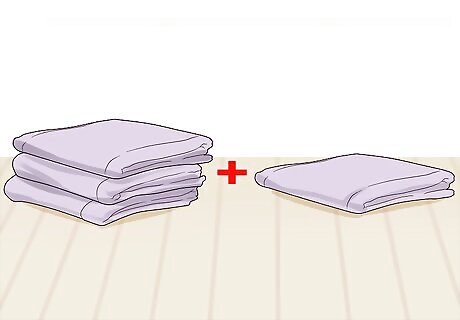
Invest in extra supplies. Always buy a little more than you need. It's likely you'll make mistakes. Don't go overboard. Buying way more than you need can easily break your budget. However, a few extra feet of fabric or extra pieces of plywood can really help.
Avoiding Common Mistakes
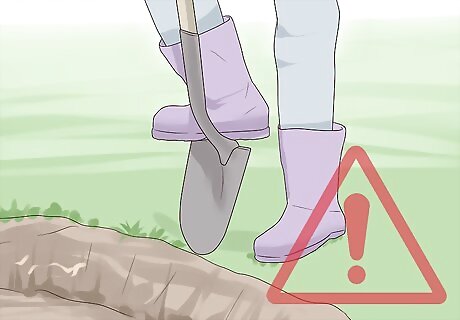
Learn construction rules in your area ahead of time. If you're building something that requires things like digging or working outdoors, review your city's regulations. You may be unable to build or dig in certain areas due to things like utility lines. You don't want to spend a lot of money on a project only to find out it's not possible to complete.

Talk to an expert if necessary. If you've never done a project before, consult an expert. Ask someone at the hardware store or call up a friend with experience in DIY projects. You need to understand the full process before embarking on a project. An expert can also give you tips on where and how you can save money on supplies.
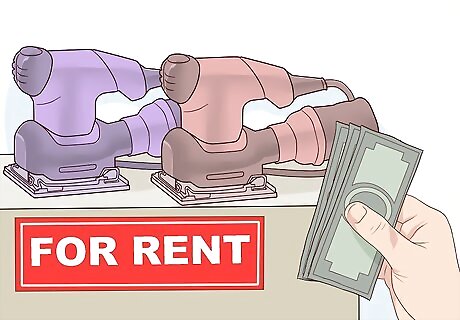
Rent instead of buying when possible. If you can't find someone to lend you a tool, you don't have to buy it. See if there's a local hardware store that rents out tools. It will be much cheaper to rent a tool you need for a day than to buy one, especially if you're likely to only use the tool a single time.
















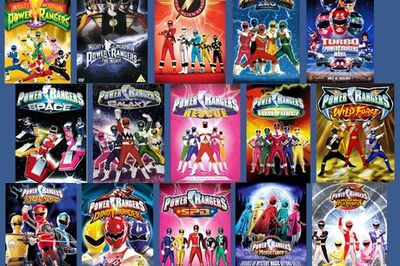



Comments
0 comment